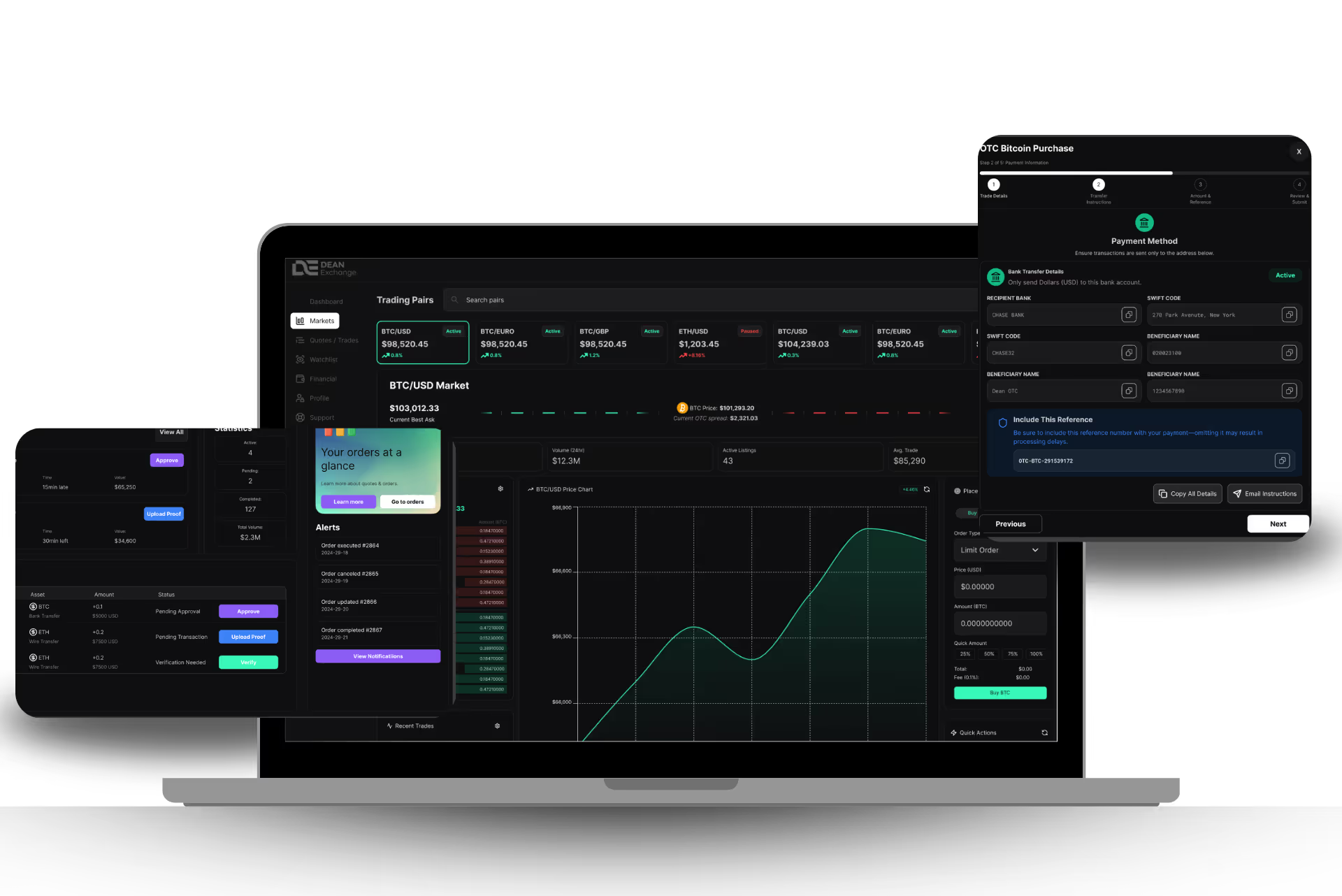By the
This is some text inside of a div block.
This is some text inside of a div block.
•
5
min read

If you’re new to cryptocurrency investing, one of the first questions you’ll face is: Bitcoin vs Ethereum—Which one should you buy? These two digital assets are the most well-known and widely held in the crypto market. While they share some similarities, they serve very different purposes and are built on distinct technologies.
In this beginner-friendly guide, we’ll break down the key differences between Bitcoin (BTC) and Ethereum (ETH), helping you understand their use cases, technology, performance, and whether they’re a fit for your portfolio. Whether you're just getting started or looking to diversify, this side-by-side comparison will give you the clarity you need.
At Dean Exchange, we help new investors make smarter decisions with easy-to-understand content, expert-led cryptocurrency tutorials, and real-time insights on crypto market trends. Let’s dive in.
Bitcoin (BTC) was launched in 2009 by the mysterious figure known as Satoshi Nakamoto (pseudonym). Its primary purpose is to act as digital gold and a store of value. The blockchain is designed for simple transactions, with a supply limit of 21 million coins. Bitcoin operates on a Proof of Work consensus mechanism.
Ethereum (ETH), on the other hand, was launched in 2015 by Vitalik Buterin and his team. It was created as a programmable blockchain for smart contracts, enabling decentralized apps and financial services. Unlike Bitcoin, Ethereum has no fixed supply cap. Since 2022, Ethereum transitioned from Proof of Work to a Proof of Stake consensus mechanism.
Feature
Bitcoin (BTC)
Ethereum (ETH)
Launch Year
2009
2015
Created By
Satoshi Nakamoto (pseudonym)
Vitalik Buterin and team
Primary Purpose
Digital gold, store of value
Programmable blockchain for smart contracts
Blockchain Function
Simple transactions
Decentralized apps and financial services
Supply Limit
21 million coins
No fixed supply cap
Consensus Mechanism
Proof of Work
Proof of Stake (since 2022)
Bitcoin was created as a decentralized currency, free from government control. Over the years, it has evolved into a store of value, often compared to gold. It’s used primarily for:
Pros:
Cons:
Ethereum is more than just a currency—it’s a programmable platform that allows developers to build decentralized applications (dApps). It's the backbone of:
Pros:
Cons:
While it's considered highly secure, PoW is energy-intensive, which has raised environmental concerns.
Dean Exchange Tip: If you're learning about blockchain technology, Ethereum offers more opportunities to explore real-world use cases, especially through hands-on cryptocurrency tutorials.
Both assets are volatile compared to traditional investments. However:
Ideal For: Beginners, conservative investors, and those looking for a hedge against inflation.
Ideal For: Intermediate users, tech-savvy investors, and those interested in future applications of blockchain.
Absolutely. Many smart investors hold both Bitcoin and Ethereum as part of a diversified cryptocurrency investing strategy. The two assets complement each other well:
You can also explore crypto index funds or ETFs that include both assets, depending on availability in your region
Focus on fundamentals and long-term use cases—not just the latest news.
Learn how to safely store your assets using hot or cold wallets. Dean Exchange offers simple, step-by-step wallet guides.
Both networks can have high transaction costs. Always check fees before trading or transferring.
Navigating the world of crypto can be challenging—but you don’t have to do it alone. At Dean Exchange, we help you understand, analyze, and act on crypto opportunities with:
Whether you're comparing Bitcoin vs Ethereum, setting up your first wallet, or diving into DeFi, our content is designed to empower you—step by step.
So, Bitcoin vs Ethereum—Which one should you buy?
If you’re looking for a secure, long-term asset with less complexity, Bitcoin may be the right choice. If you’re interested in the future of blockchain apps, earning yields through staking, and participating in a dynamic ecosystem, Ethereum could offer more upside.
For most investors, holding both BTC and ETH offers the best of both worlds: stability and innovation.
Ready to make an informed investment?
Join Dean Exchange today to access trusted tutorials, real-time sessions, and expert guidance that make cryptocurrency investing clear and approachable—no matter where you're starting.


Join our newsletter for exclusive insights, breaking crypto trends, and learning opportunities—delivered straight to your inbox.